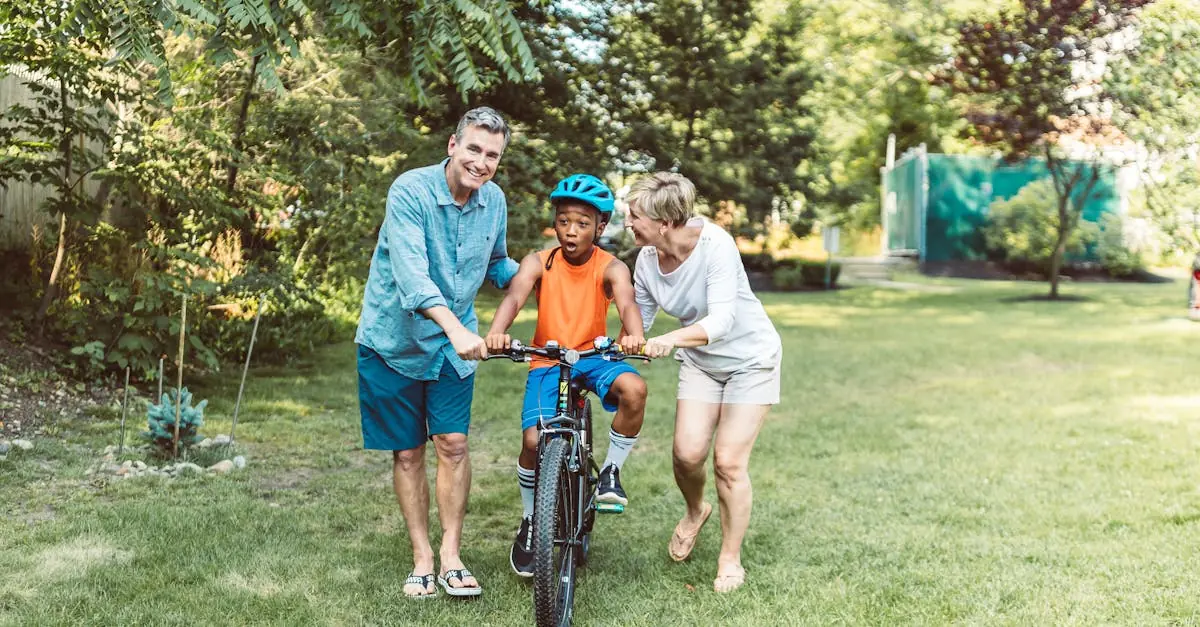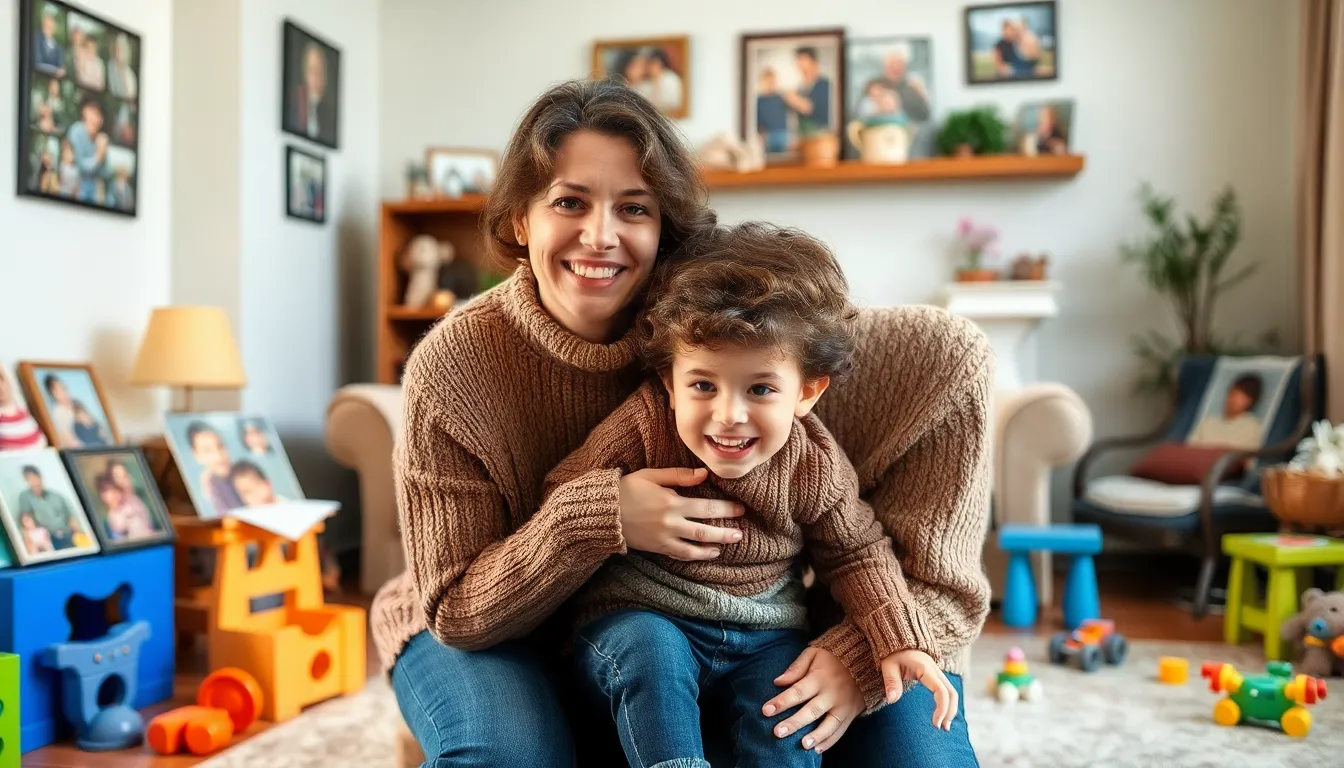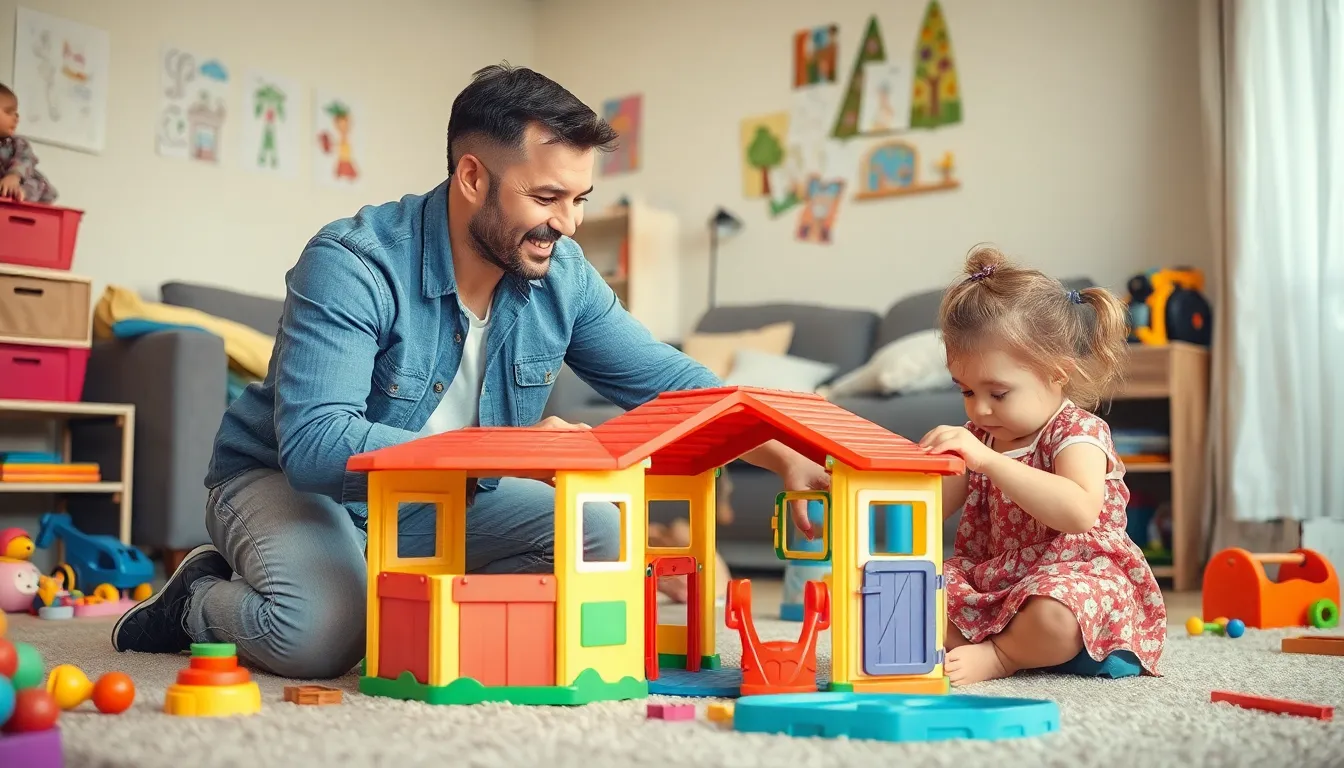Navigating the world of education can feel like trying to solve a Rubik’s Cube blindfolded, especially for adopted children with Individualized Education Programs (IEPs). These kids are often faced with unique challenges that require tailored support. It’s not just about learning letters and numbers; it’s about understanding their individual needs and unlocking their potential.
Table of Contents
ToggleUnderstanding IEPs
IEPs play a crucial role in the educational experience of adopted children. These programs offer tailored support to meet individual learning needs.
Definition of IEPs
An Individualized Education Program (IEP) serves as a customized plan designed for students with disabilities. This document outlines educational goals and the specific services required for academic success. IEPs are mandated under the Individuals with Disabilities Education Act (IDEA). Schools, parents, and educators collaborate to develop these plans, ensuring a child receives appropriate support tailored to their unique circumstances.
Importance of IEPs in Education
IEPs hold significant importance in fostering educational success. They provide essential resources that address both academic and emotional needs. For adopted children, such programs can support transitions, special challenges, and integration into new environments. Tailored goals within an IEP ensure every child can progress at their own pace. This individualized approach promotes self-esteem and encourages a positive learning experience. Overall, IEPs are pivotal in creating inclusive educational environments that enhance the learning journey for adopted children.
The Adoption Journey
Adopted children often encounter unique challenges throughout their educational experience. Educational environments must recognize these challenges to create effective support systems.
Unique Challenges for Adopted Children
Adopted children frequently face difficulties related to attachment issues and trauma from previous experiences. These factors can influence their academic performance and social interactions. They may struggle with trust and self-esteem, impacting their willingness to participate in class activities. Learning differences might also arise, necessitating specialized teaching strategies that align with their unique learning profiles. Recognition of these challenges is essential for educators and parents to work collaboratively in creating effective Individualized Education Programs (IEPs) that address their needs.
Emotional and Behavioral Considerations
Emotional and behavioral challenges often accompany the educational journeys of adopted children. Feelings of abandonment, identity struggles, and adjustment issues can manifest in various ways, including anxiety and acting out. Developing coping strategies helps these children express their emotions constructively. Regular communication between educators and mental health professionals can support this process. Incorporating social-emotional learning techniques into the classroom fosters resilience and helps adopted children navigate their experiences more effectively. Providing a safe and nurturing environment enhances their ability to focus on learning and personal growth.
IEPs and Adopted Children
Adopted children often face unique educational challenges that require individualized attention. IEPs play a crucial role in addressing these specific needs.
The Need for Tailored Education Plans
Tailored education plans provide the framework for meeting the academic and emotional needs of adopted children. Attachment issues and trauma from previous experiences greatly influence their learning. Each plan must consider the child’s background, strengths, and areas for improvement. Implementing specific strategies, such as differentiated instruction and regular assessments, fosters a supportive learning environment. These personalized approaches ensure children not only achieve academic goals but also enhance their social interactions and emotional health. Collaborating with professionals in mental health and education facilitates comprehensive strategies that promote overall well-being.
Success Stories of IEP Implementation
Numerous success stories illustrate the effectiveness of IEPs for adopted children. For example, one child struggled with anxiety, limiting her classroom participation. After implementing an IEP, she gained access to counseling sessions and social-emotional learning activities. As a result, her confidence blossomed, leading her to engage more actively during class discussions. Another case involved a child with learning difficulties who received tailored reading interventions through his IEP. With consistent support, he improved his reading level significantly within a year. These examples demonstrate how carefully designed IEPs can lead to remarkable progress, inspiring both educators and families in their journeys.
Collaboration with Families
Collaboration with families is vital for the success of IEPs for adopted children. Engaging all members in the process ensures that the child’s unique background and requirements are fully understood.
Involving Adoptive Parents in the IEP Process
Adoptive parents play a crucial role in the IEP process. Their insights into a child’s history and emotional context contribute significantly to developing effective educational strategies. Actively seeking their input not only leads to better goals but also strengthens the partnership between families and schools. Parents who participate in meetings can provide information about their child’s strengths and challenges, making it easier to tailor plans to fit individual needs.
Communicating with Educators and Specialists
Effective communication between families and educators holds great importance. Establishing open lines of dialogue enables parents to share concerns and updates about their child’s progress. Regular check-ins promote an understanding of the child’s evolving needs and ensure everyone stays aligned. Utilizing tools like emails, phone calls, and parent-teacher conferences enhances collaboration. Setting clear expectations around communication can greatly reduce misunderstandings, allowing for a unified approach in supporting the child’s educational journey.
Conclusion
Supporting adopted children with IEPs is essential for their educational and emotional development. Tailored plans address their unique challenges while promoting resilience and self-esteem. Collaboration between families and educators plays a critical role in this process, ensuring that each child’s background and needs are understood and met.
By fostering open communication and utilizing effective strategies, schools can create a nurturing environment that encourages growth. As adoptive parents and educators work together, they pave the way for these children to thrive academically and socially. Ultimately, the right support can make a significant difference in their learning journey, helping them achieve their full potential.







